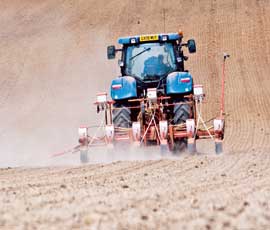EU farming needs urgent transformation, MPs told

European agriculture will “continue to stagnate” unless the industry is urgently transformed to help farmers produce more food, politicians have been warned.
The House of Lords agriculture, fisheries and environment EU sub-committee, said farmers could not tackle climate change, food price volatility or feed the world’s growing populations unless agricultural innovation was put at the heart of government policy.
The committee’s report on innovation in EU agriculture said CAP budgets should be diverted so that investment in scientific research in agriculture could be significantly increased.
It also said ongoing debates about reform of the Common Agricultural Policy should ensure the “innovation-hostile environment” of Brussels must be overcome, while member states should insure innovation and science is properly communicated to farmers.
The results of the report, published on Thursday (7 July), came after a year-long investigation into agricultural innovation.
It involved taking evidence from industry representatives including the NFU, farm minister Jim Paice, the Soil Association and the EU’s agriculture committee.
Chair of the EU-sub committee, Lord Carter of Coles, said farmers could not be expected to innovate and tackle the challenge of producing more food while using fewer resources without significant help.
“With around €400bn in the agricultural policy budget and another €2bn allocated to agricultural research, there is huge room for re-allocation of finances without changing the size of the agricultural purse,” he said.
European Commission plans to increase spending agricultural research as part of its 2014-20 agriculture budget was a step in the right direction, but did not represent the shift that was required, he added.
“An increase in the research budget will count for nothing if we do not also involve farmers.
“Research findings and innovative ideas need to be put into practice through better farm advice systems – crucially, farmers must be helped to understand how change can make their business more profitable.”
He said scientists, retailers, farmers and consumers needed to work in partnership to help overcome the problems facing agriculture.
“Without the investment in research, communication with producers and consumers and a change in regulatory approach that makes Brussels more innovation-friendly, EU agricultural production will continue to stagnate.
“The stakes are high. Agriculture must no longer be in a policy silo of its own. The UK government, other member states and the European Commission must place agriculture at the heart of policy-making.”
